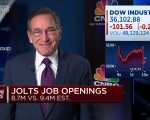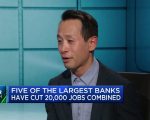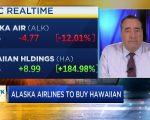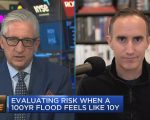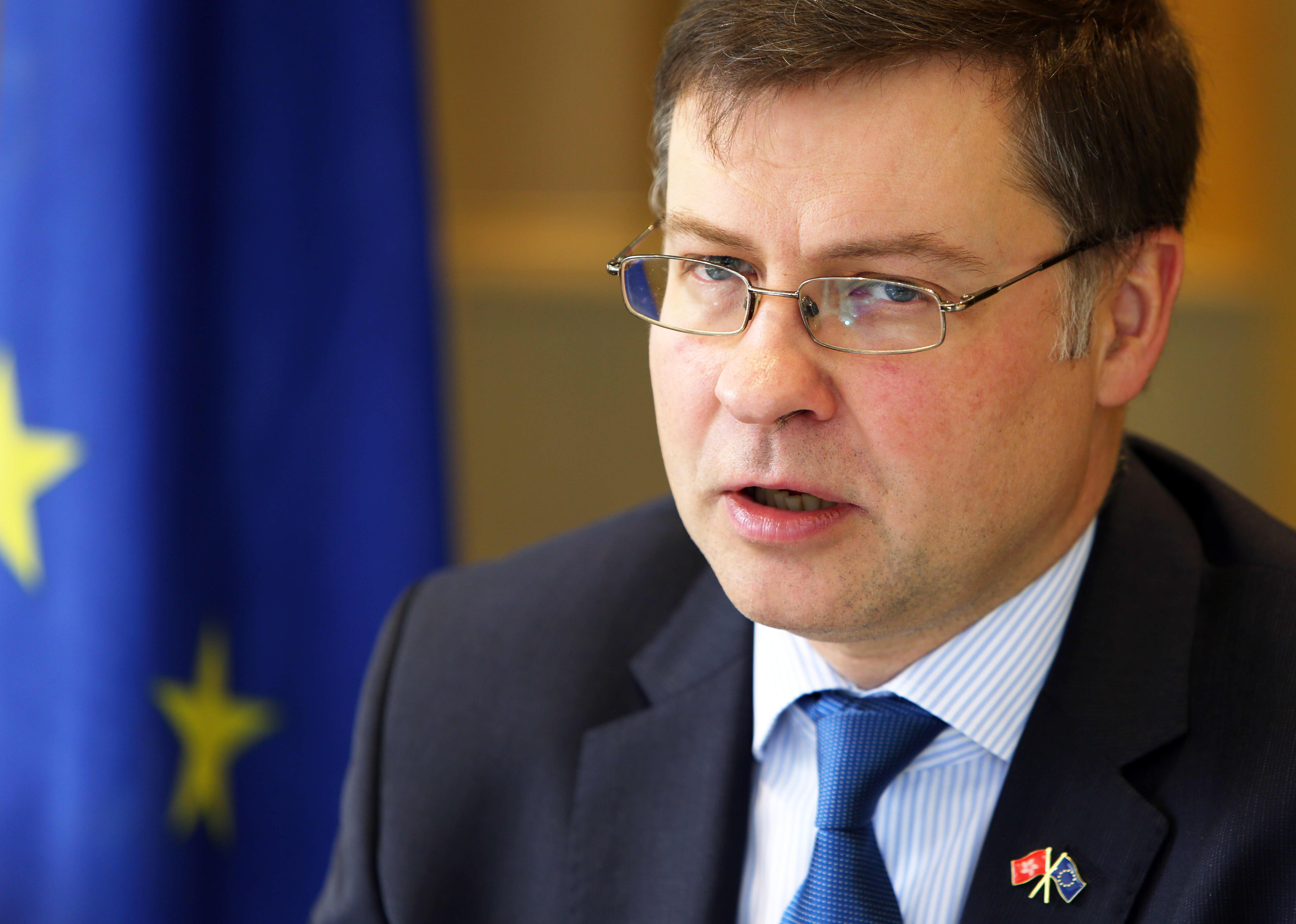
It is a make-or-break moment for China’s relationship with the European Union, as the bloc’s trade chief asks for more openness and fairness from Beijing.
“We stand at a crossroads. We can choose a path towards mutually beneficial relations. One which is based on open, fair trade and investment, and working hand in hand on the great challenges of our time,” Valdis Dombrovskis, executive vice president of the European Commission, said at Tsinghua University in Beijing on Monday.
“Or we can choose a path that slowly moves us apart. Where the shared benefits we enjoyed in recent decades weaken, and fade. And, as a result, where our people and economies face reduced opportunities,” he added.
This is some of the sharpest wording to come from European officials and follows data that showed the EU logging a trade deficit of almost 400 billion euros with China in 2022.
“Last year, the EU registered record bilateral trade with China of 865 billion euros ($921 billion). But this is very unbalanced, because the EU has a trade deficit of almost 400 billion euros,” Dombrovskis said Saturday before an audience in Shanghai, where he began his four-day trip to China late last week.
The visit, which was a while in the making, coincidentally came less than two weeks after the European Commission, the executive arm of the EU, opened an investigation into Chinese subsidies to electric car manufacturers.
While the EU argues that Chinese support to EVs is creating distortions in the European market, Beijing authorities criticize what they described as “protectionist” views from Brussels.
Dombrovskis is using the trip to explain to his Chinese counterparts that the probe aims to create fairer trading practices, and that the EU does not plan to cut ties with Beijing.
In recent months, the EU has put more and more emphasis on the idea of de-risking from China — a concept that tries to bridge the gap between a more aggressive U.S. decoupling and the EU’s awareness that China is a critical trading partner.
“De-risk. This means minimising our strategic dependencies for a select number of strategic products. Acting in a proportionate and targeted way to maintain our open strategic autonomy,” Dombrovskis clarified in a speech in Shanghai.
De-risking, not decoupling
European officials have stressed their plan is not to decouple from China and have looked to influence the United States to take the same approach.
In a joint statement of the Group of Seven, the world’s seven largest economies, the U.S. agreed there is a need to de-risk from Beijing.
“It looks more like it’s China decoupling from Europe, and Europe is becoming ever more dependent on China,” Jens Eskelund, president of the European Union Chamber of Commerce in China, told CNBC’s “Asia Squawk Box” on Monday.
“When you look at the facts, you look at the figures, it looks like the decoupling is going the other direction,” he said, noting that China has been “de-risking itself for decades.”
One of the areas where the EU is looking to de-risk is the electric vehicle sector, after the share of such China-made cars sold into Europe rose to 8% this year. European officials have said this slice could reach 15% by 2025.
EV market developments are particularly significant ahead of a European deadline to end the sale of new diesel and petrol cars by 2035.
Eskelund also said that European automakers set up factories and have up to 95% of their whole production value chain in China.
“They create jobs, they pay taxes in China,” he said, adding, “What we’re looking at now is… 100% produced-in-China imports [coming] into Europe.”
When asked about potential retaliation from China over the investigation, Eskelund maintained that both Europe and Beijing have “very deep interests” to try to resolve the matter before it reaches a point of imposing punitive tariffs.
“The two sides need to sit down and have a grown up conversation about what some of the barriers are,” he said.

